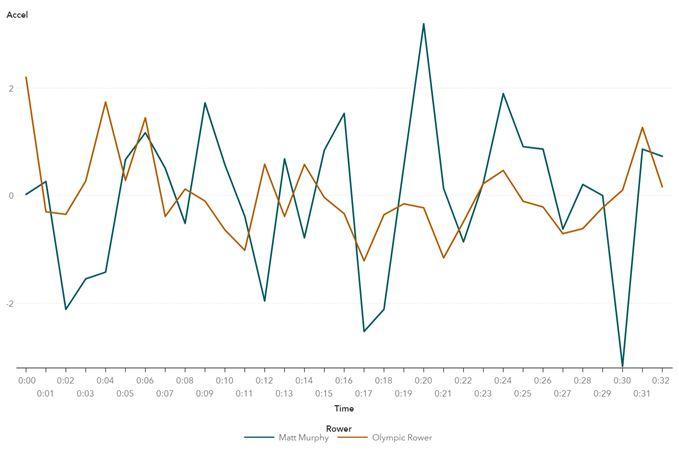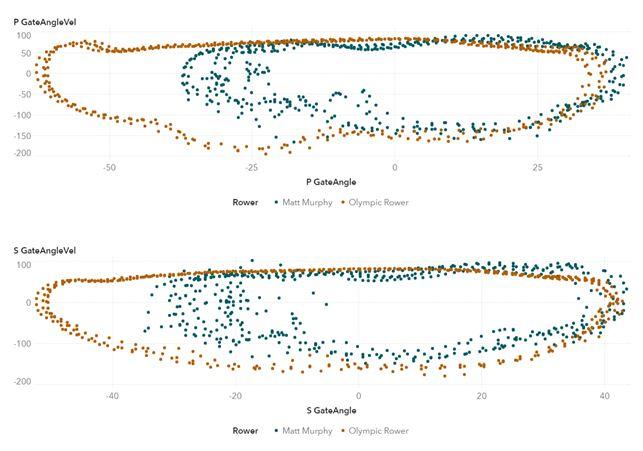Head-to-head with an Olympic champion: A rowing masterclass with double gold medalist Helen Glover
The athlete also gave her opinion on funding cuts to other sports and the future of her career

Your support helps us to tell the story
From reproductive rights to climate change to Big Tech, The Independent is on the ground when the story is developing. Whether it's investigating the financials of Elon Musk's pro-Trump PAC or producing our latest documentary, 'The A Word', which shines a light on the American women fighting for reproductive rights, we know how important it is to parse out the facts from the messaging.
At such a critical moment in US history, we need reporters on the ground. Your donation allows us to keep sending journalists to speak to both sides of the story.
The Independent is trusted by Americans across the entire political spectrum. And unlike many other quality news outlets, we choose not to lock Americans out of our reporting and analysis with paywalls. We believe quality journalism should be available to everyone, paid for by those who can afford it.
Your support makes all the difference.When in search of sporting success, there are few better examples to follow than someone who took gold in a record time at their first-ever Olympic Games.
As luck would have it, I was invited not just to meet such an Olympian, but to get a personalised lesson, a chance to race them and to compare our results using Team GB-standard analytics.
An introduction like that doesn’t actually do Helen Glover’s incredible career justice.
She stepped into a boat for the first time just four years before London 2012. Since her remarkable performance there, she hasn’t fallen from the peak of international success – taking gold at the World Championships in 2013, 2014 and 2015, and retaining her Olympic title last year in Rio.
Having never got closer to a pair of oars than a rowing machine at the gym, my own experience of the task in hand was rather limited.
I met with Helen at a sports centre in London Docklands, just a couple of tube stops away from where Britain won gold in a host of events at the ExCeL arena five years ago.
“I think anyone can learn to row within a couple of months, but if you’re particularly quick at picking up these skills it could be a couple of weeks,” Helen tells me.
“But not many people get in a boat and are able to row first time.”
Here, I was introduced to an indoor rowing tank. This machine, where I would complete my test, is built into the middle of a small swimming pool to resemble a full-sized, eight-person boat. It simulates the conditions of rowing upstream as the water surges down either side. It was mightily unnerving when it was first switched on.
Putting me at ease, Helen guided me through the basics at a gentle pace. From positioning my legs and arms, to feathering the oars at the right moment, there’s a lot more to get your body used to doing simultaneously than expected.
“When I first got in a boat, I was exactly the same,” she admitted.
“I was thinking ‘how hard can this be?’ and then suddenly realised that I was trying to think of about 100 different things at the same time.
“It did take weeks and months to even get to the stage where I felt like it resembled rowing.”
Gathering pace, I was then ready to challenge Helen to a 30-second, timed trial. The Olympian recorded her attempt before I arrived, and so I had little idea of what to expect even if it did seem like I was making waves, so to speak.
A nervy half a minute later and I was questioning whether I’d made any progress at all, but I was shocked to hear genuine compliments coming from the expert.
“I have to say, actually, you were really good. You’re a real natural,” she said.
It wasn’t until after her first year in the sport that the 31-year-old started “legitimately thinking” rowing was something she could excel in. And then, after three more years of practice, she stood at the top of the Olympic podium, wrapped in gold.
“I came from a robust, thorough, sporting background and just happened to change sports rather than just pick something up from the beginning,” she explained.
The GB rowing team have recently renewed their contract with SAS, which provides the analytics software needed to keep a close eye on each athlete’s progress, and was on hand to tell me how well I’d performed.

Special sensors in the footplates and oars mean rowers are able to compare a number of factors, from how fast they row at each moment to how wide and powerful each stroke is, and even which areas they can improve on. For me, the stats showed things hadn’t gone too drastically wrong on my own first attempt.
Partnerships like this show the heavier reliance for sport to combine technology with its coaching programmes in order to dictate success, which luckily isn’t something Britain has struggled with. Rowing is the only sport to have delivered a gold medal for the country in every Games since 1984.
“Looking forward for rowing, to have this relationship with SAS and to look at the analytical element to our rowing, it does give us that edge,” Helen explained.
“It does mean in Tokyo our rowers will be best prepared because they’ve had the data, they’ve had the information, and they can be the best version of themselves.”

In contrast, there will be other sports lying dead in the water when it comes to visions of 2020.
Announcements in February confirmed UK Sport would cut funding entirely to seven areas, including badminton, table tennis and archery.
“The difficult catch-22 is that our funding is based on performance. So the sports that don’t perform don’t receive further funding.”
“I just don’t see how they’re going to find themselves out of the hole that they’re in.”
In terms of her own career, Helen admitted she still hasn’t made up her mind on retirement. Her coxless pair partner Heather Stanning announced hers in the immediate aftermath of winning in Rio.
She joked that she wanted to have made a decision on whether to retire by Easter, but is still weighing up her options.
“I have reached a career high, and London was one thing, but I always knew I wanted to back it up in Rio.
“Why would I carry on? What would I gain from carrying on? Could I handle the pressure? And what there is in real, normal life. Those are the questions I’m answering.
“I thought it would happen naturally. So I think I’m going to have to be a little more active now about the way I decide whether I’m going to go back.”
Helen Glover was speaking on behalf of SAS, the official analytics partner of British Rowing.
Join our commenting forum
Join thought-provoking conversations, follow other Independent readers and see their replies
Comments